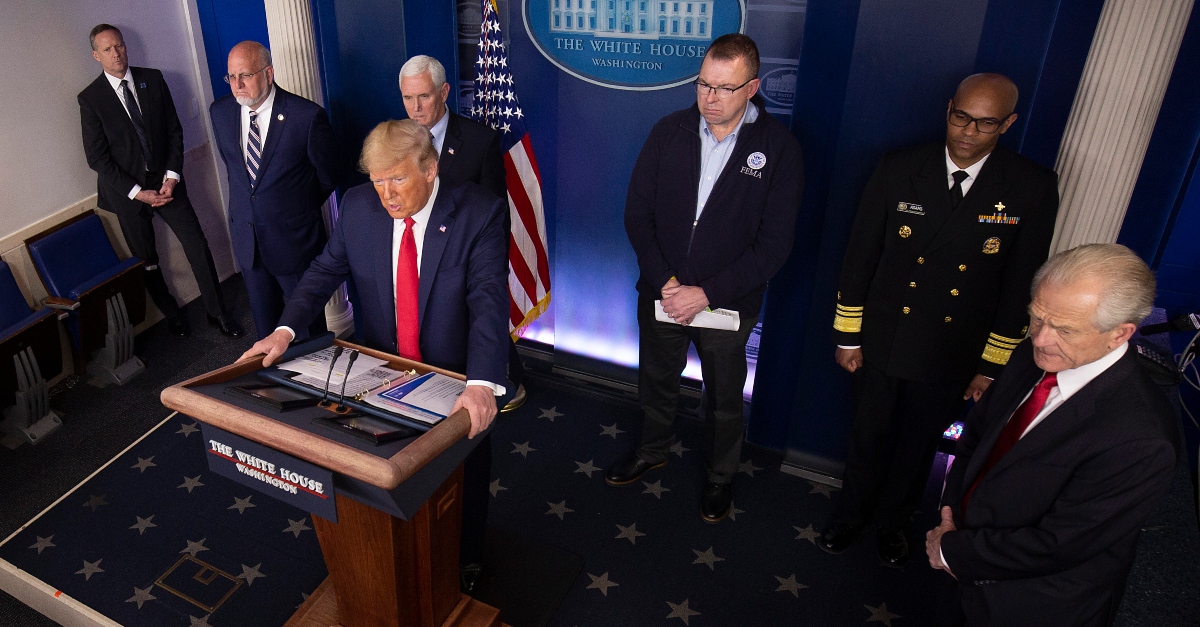
A government watchdog group on Monday revealed that at least 31 federal whistleblower disclosures have been filed with the U.S. Office of Special Counsel (OSC) and at least 15 federal whistleblowers have filed official reports of retaliation stemming from their reporting of concerns relating to the federal government’s pandemic response.
According to the Project on Government Oversight (POGO), a group dedicated to exposing government corruption and protecting whistleblowers, the overall number of federal employees who have filed coronavirus-related whistleblower complaints is far greater than previously known and the employees are spread across multiple agencies.
“Unlike in past instances when the Office of Special Counsel has taken internal actions to deal with a big influx of cases, such as when a surge of Federal Aviation Administration matters occurred under the George W. Bush administration or when the tidal wave of Department of Veterans Affairs cases flooded the office under President Barack Obama, there is no single agency that’s necessarily the source of coronavirus-related complaints. They could come from virtually anywhere in the federal government,” the report stated.
For example, a Department of Veterans Affairs hospital employee in Portland, Oregon filed a whistleblower complaint in March claiming the government never warned him that he was being exposed to a patient who had tested positive for the COVID-19 coronavirus disease. The employee, Jason Phillips, was not required to wear any personal protective equipment (PPE) and went on to expose his family to the virus before he was informed about the exposure.
Phillips went on to file an official whistleblower report because not only was he denied knowledge of the patients illness, but he also claimed that his supervisor attempted to “coach him to change his story about not wearing a mask and about the length of time he was exposed to the patient,” according to the Washington Post.
In April, Rick Bright, the former head of the Biomedical Advanced Research and Development Authority at the Department of Health and Human Services (HHS), claimed he was demoted for opposing the broad use of hydroxychloroquine, an anti-malaria drug championed by President Donald Trump despite a dearth of evidence regarding its effectiveness.
The OSC is an independent federal agency charged with protecting the rights of federal workers, but unlike inspectors general, special counsel investigators can only be removed by the president “for inefficiency, neglect of duty, or malfeasance in office.”
This independence from the executive branch could be of particular significance if the office’s investigations reveal any politically damaging information. President Trump has already shown a propensity for jettisoning officials responsible for producing such report (see: the recent firing of HHS deputy inspector general Christi Grimm).
OSC’s head official Henry Kerner, a Trump appointee, recently said he expects the number of coronavirus-related whistleblower filings to continue to increase; experts say Congress may need to take additional action to protect whistleblowers and ensure government waste does not go unnoticed.
“Whistleblowers will be a critical ally for the government and for taxpayers in addressing this crisis. POGO’s investigation demonstrates that employees are already coming forward with information that could help to free up funds, root out dangers to public health and safety, and stop abusive practices early and often,” POGO Policy Counsel Rebecca Jones wrote in an email to Law&Crime.
“But if Congress values whistleblowers as a key partner in COVID-response, they need to make sure individuals can both speak out and be protected from retaliation. This means granting federal whistleblowers access to jury trials for challenging retaliation,” Jones said. “It also means strengthening the inspector general system to protect the independence of IGs as a key recipient of whistleblower disclosures. If we want whistleblowers to speak out, we need to protect them in the process.”
[image via Tasos Katopodis_Getty Images]